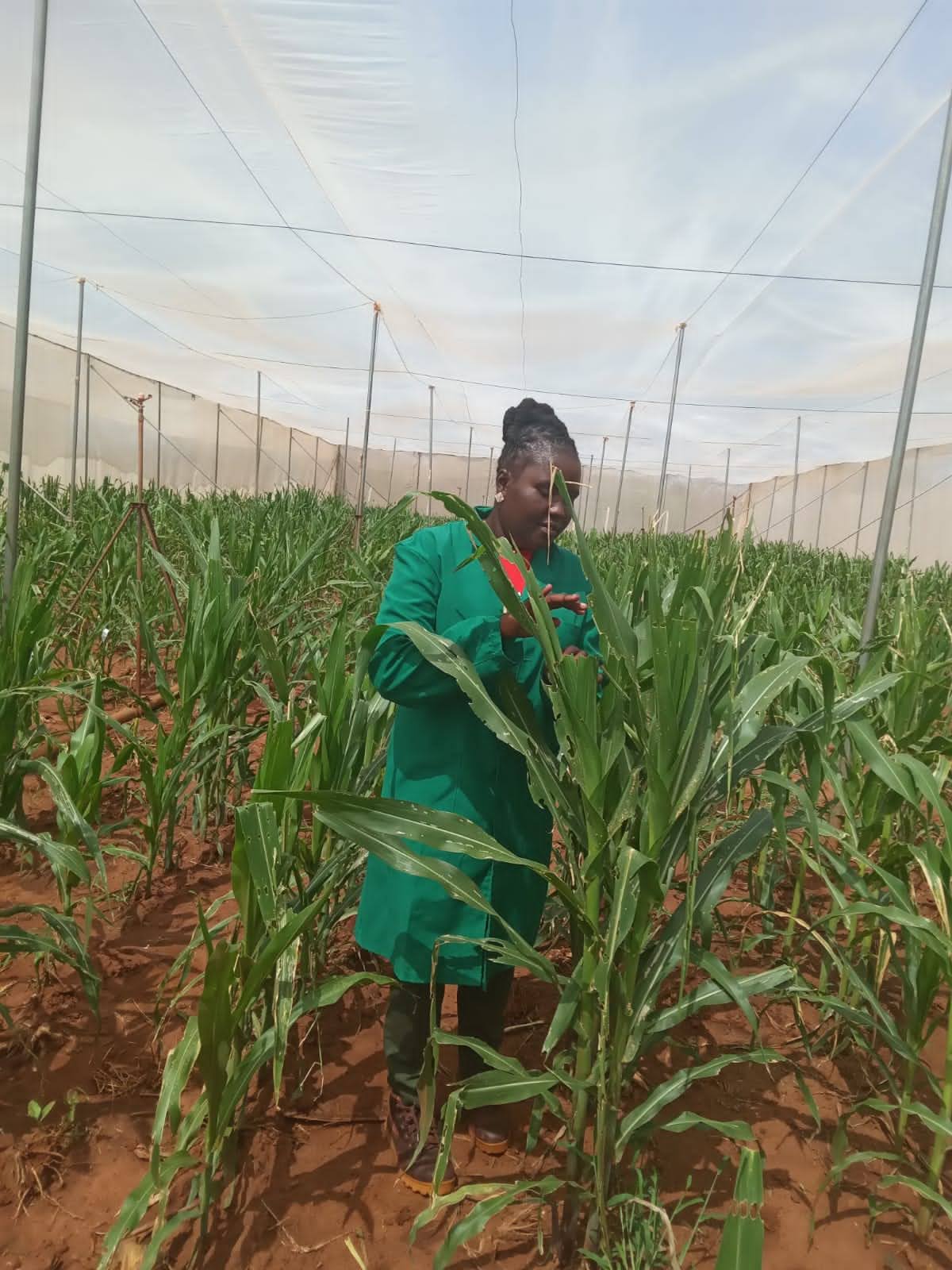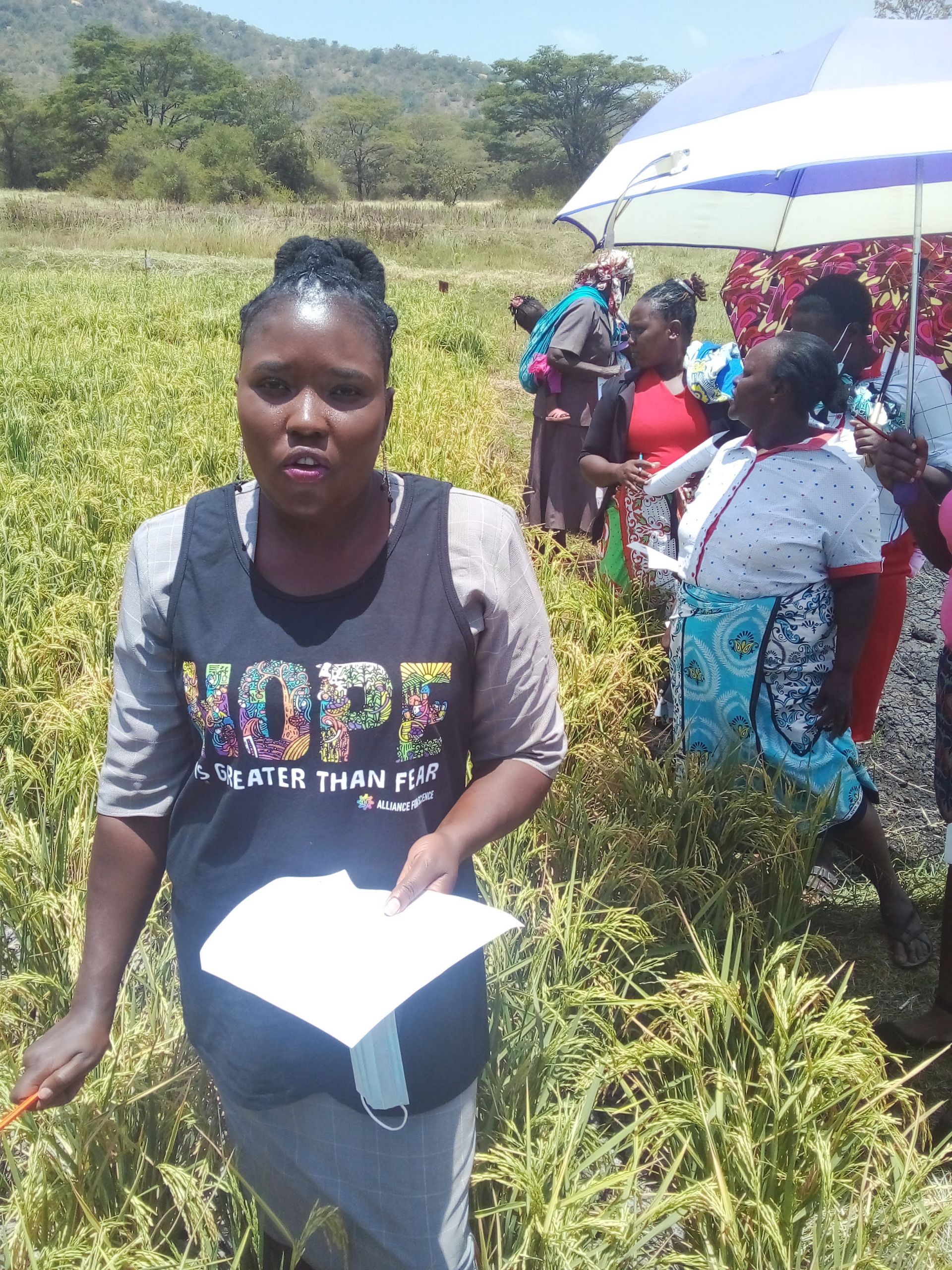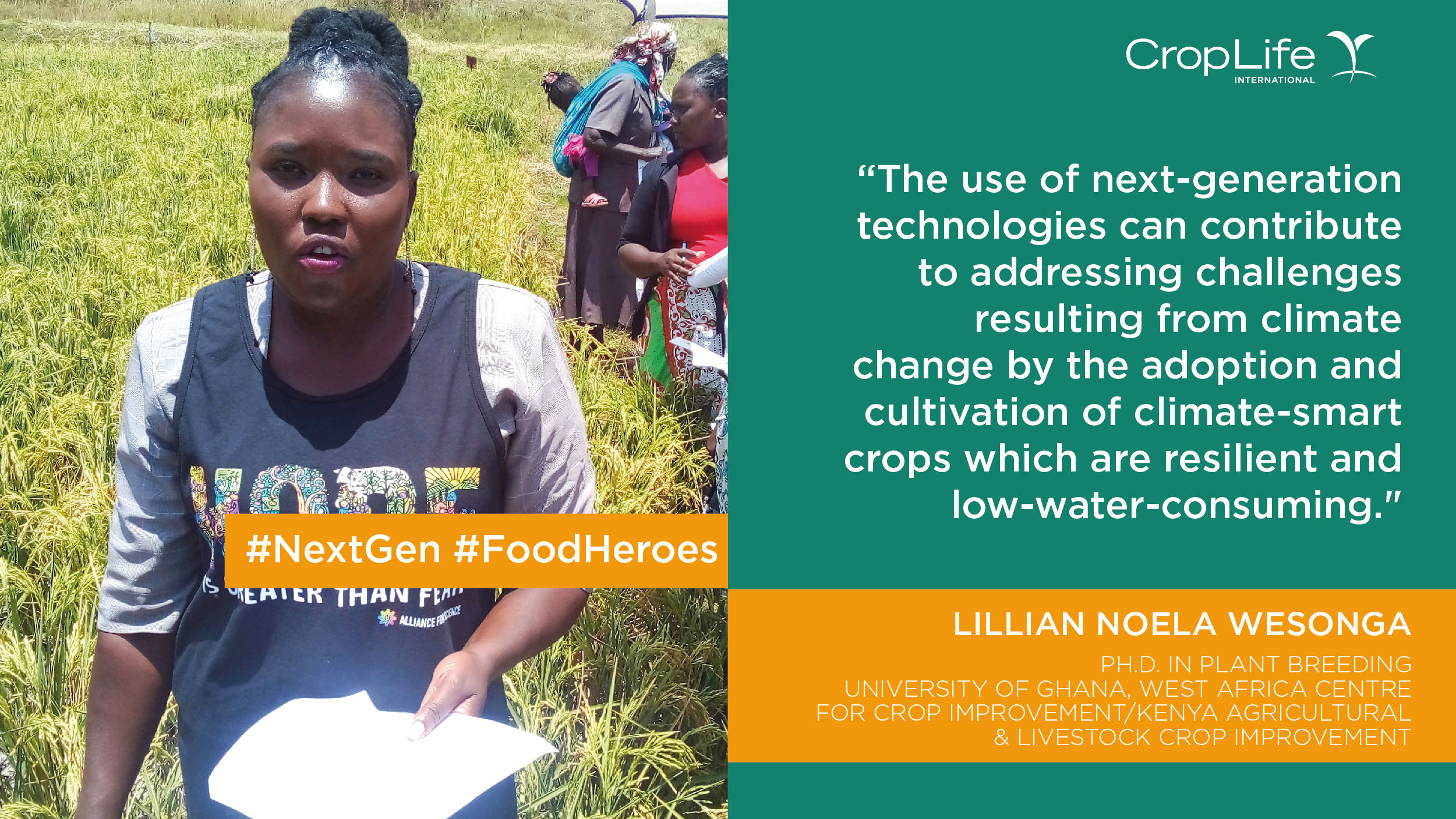
I am a maize researcher. The focus of my Ph.D. work is on breeding for resistance to fall armyworm and stemborers in
Tell us a bit about your career. What do you love about your work and how did you get here?
With the global population projected to exceed 9.7 billion people by the year 2050, Africa is particularly vulnerable to food insecurity and poverty. The situation is worsened by climate change scenarios and loss of soil fertility. Of particular interest to my research is the emergence as well as the quick spread of fall armyworm (Spodoptera frugiperda) and stemborers in Africa, which poses a serious threat to millions of smallholder farmers in terms of income and food security. My proposed Ph.D. research aims to contribute to enhanced food security in the continent by setting up a platform for effective, sustainable, and environmentally friendly fall armyworm management for smallholder farmers in Africa.
I decided to work on lepidopteran pest resistance because it’s a major challenge to smallholder maize farmers. Maize infestation by fall armyworm and stemborers results in massive yield losses. This has a direct negative impact on the farmers’ livelihood and that is why I choose to work on a project that will contribute to the reduction of these losses, thereby improving food security.
 What advice would you share with young people who hope to contribute to sustainable food systems and farming?
What advice would you share with young people who hope to contribute to sustainable food systems and farming?
Young people can contribute to sustainable food systems and farming through using improved varieties to maximize yield, engaging in modern farming practices, using disease-free planting materials, and implementing good agricultural practices.
How does agriculture need to change to be more sustainable?
For agriculture to be more sustainable, the agricultural practices used by farmers should ensure the conservation of the ecosystems and efficient management of natural resources so land and water while ensuring food security.
How can science and innovation help promote sustainability in food and agriculture?
Science and innovation can help promote sustainability in food and agriculture by encouraging the cultivation of improved high-yield crop varieties by farmers while using sustainable agricultural practices. This can be achieved by putting in place appropriate governance structures for agricultural innovation and establishing means of sharing knowledge between farmers and scientists.
In what ways are you leveraging innovation to promote strong food systems? Can you provide specific examples of innovation/technologies that support your work in tangible ways?
As a breeder, the use of molecular markers to accelerate the genetic gain during crop improvement and reduce the breeding time compared to conventional breeding is an example of technology that can assist in promoting strong food systems by increasing crop yield. This technology is called Marker Assisted Selection, which enables a breeder to select the trait of interest that is being improved in a crop.
How do you see next-generation agricultural technologies contributing to climate change?
The use of next-generation technologies can contribute to addressing challenges resulting from climate change by the adoption and cultivation of climate-smart crops that are resilient and low-water-consuming. This includes the cultivation of drought-tolerant (water use efficient) crops that can produce high yields with minimum rainfall.
Noela is just one of many inspirational young people working in agriculture. Visit our #FoodHeroes page to hear from others working to improve plant science and sustainable agriculture.


